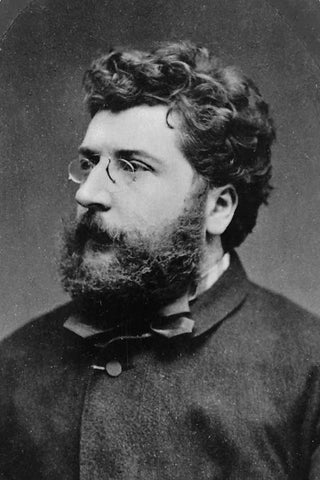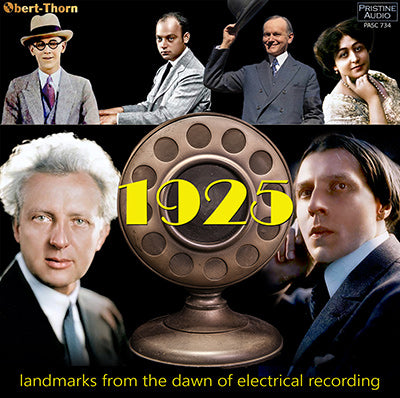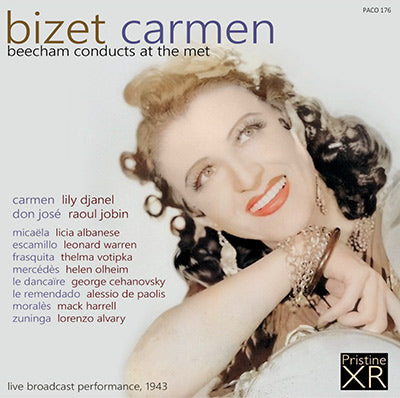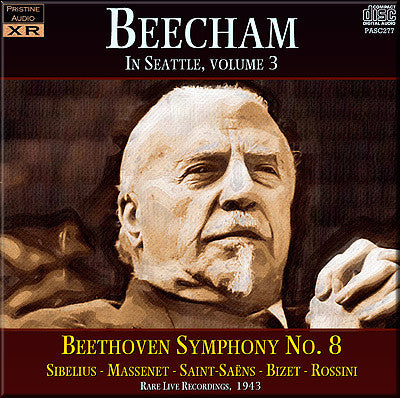Bizet

During a brilliant student career at the Conservatoire de Paris, Bizet won many prizes, including the prestigious Prix de Rome in 1857. He was recognised as an outstanding pianist, though he chose not to capitalise on this skill and rarely performed in public. Returning to Paris after almost three years in Italy, he found that the main Parisian opera theatres preferred the established classical repertoire to the works of newcomers. His keyboard and orchestral compositions were likewise largely ignored; as a result, his career stalled, and he earned his living mainly by arranging and transcribing the music of others. Restless for success, he began many theatrical projects during the 1860s, most of which were abandoned. Neither of his two operas that reached the stage in this time—Les pêcheurs de perles and La jolie fille de Perth—were immediately successful.
After the Franco-Prussian War of 1870–71, during which Bizet served in the National Guard, he had little success with his one-act opera Djamileh, though an orchestral suite derived from his incidental music to Alphonse Daudet's play L'Arlésienne was instantly popular. The production of Bizet's final opera, Carmen, was delayed because of fears that its themes of betrayal and murder would offend audiences. After its premiere on 3 March 1875, Bizet was convinced that the work was a failure; he died of a heart attack three months later, unaware that it would prove a spectacular and enduring success.
Bizet's marriage to Geneviève Halévy was intermittently happy and produced one son. After his death, his work, apart from Carmen, was generally neglected. Manuscripts were given away or lost, and published versions of his works were frequently revised and adapted by other hands. He founded no school and had no obvious disciples or successors. After years of neglect, his works began to be performed more frequently in the 20th century. Later commentators have acclaimed him as a composer of brilliance and originality whose premature death was a significant loss to French musical theatre.

Bizet
During a brilliant student career at the Conservatoire de Paris,...
TCHAIKOVSKY Symphony No. 4
SAINT-SAËNS Danse Macabre
BIZET Petite Suite
Music by Chopin, Meyerbeer, Mascagni, Schubert & many more
Studio and Live Recordings, 1920 - 1925
Total duration: 2hr 20:22
Alfred Cortot
Jesse Crawford
Giuseppe De Luca
Art Gillham
Mischa Levitzky
Margarete Matzenauer
Landon Ronald
Leopold Stokowski
and many more
BIZET Carmen
Live broadcast performance, 1943
Total duration: 2hr 32:32
Carmen - Lily Djanel
Don José - Raoul Jobin
Micaëla - Licia Albanese
Escamillo - Leonard Warren
Chorus and Orchestra of the Metropolitan Opera
conducted by Sir Thomas Beecham
BEETHOVEN Symphony No. 8
Shorter works by Bizet, Massenet, Rossini, Saint-Saëns, Sibelius
Recorded 1943
Total duration: 74:32
Seattle Symphony
conducted by Sir Thomas Beecham
WAGNER Preludes & Orchestral Excerpts
BRAHMS Hungarian Dances
DVOŘÁK Carnival Overture
GOLDMARK In Springtime Overture
J. STRAUSS II Four Waltzes
SUPPÉ Poet And Peasant Overture
THOMAS Mignon Overture
music by Elgar, Sibelius, Handel, Mendelssohn et al
Studio recordings, 1916-1926
Total duration: 2hr 30:36
Chicago Symphony Orchestra
conducted by Frederick Stock
BIZET L'Arlésienne, Suite No. 1
BIZET L'Arlésienne, Suite No. 2
BIZET Carmen, Suite No. 1
RAVEL Rapsodie espagnole
CHABRIER España
CHABRIER Joyeuse marche
Studio recordings, 1953 & 1958
Total duration: 71:50
Philharmonia Orchestra
conducted by Herbert von Karajan
BIZET Carmen
Studio recording, 1959
Total duration: 2hr 20:53
Carmen - Consuelo Rubio
Don José - Léopold Simoneau
Micaëla - Pierrette Alarie
Escamillo - Heinz Rehfuss
Choeurs des Concerts de Paris
Les Petits Chanteurs de Saint-Nicolas
Orchestre des Concerts de Paris
conducted by Pierre-Michel Le Conte
-
Previous
- Page 1 of 3
- Next






